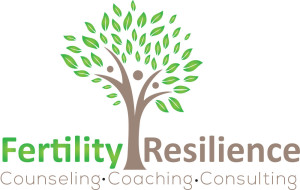This morning there was a lot of sadness in my office. My client “Dawn” has just miscarried after conceiving twins with IVF. She could barely drag herself in to see me—she has been literally hiding under the covers for the few days since her miscarriage. Now, in my office, doubled over with anguish, she was questioning her ability to go on. Two years of unsuccessful fertility treatments and now this pregnancy loss have broken her spirit and left her defeated and hopeless. “The future is empty for me” she said, “I will never be happy again”.
Those words didn’t surprise me. After all, women trying to conceive often have clinical depression rates similar to women who have heart disease or cancer. Surprising,though, was the fact that the words were coming out of Dawn’s mouth. You see, Dawn has always described herself as “a real bad-ass.” She’s confronted a great deal of adversity in her life and has emerged from it as tough and as rugged as a street fighter. When she first started fertility treatment, her attitude was, “Bring it on!” True to form, in the following two years she’s fought for her dream family with tenaciousness and unfaltering optimism. But now, she feels like she can no longer bounce back. She feels broken beyond repair.
Listening to my client today reminded me of three basic truths about resilience:
1) Most of us posses it. Like Dawn, many people have dealt with trouble or misfortune, and have picked themselves up, dusted themselves off, and went on with life, frequently strengthened by the challenge they’d faced. You too may have seen trauma, upheaval, illness, or loss. And you too may have survived, perhaps even thrived, through your ordeal.
2) It can be crushed out. Despite our natural resilience, some situations can deal us a crushing blow. Over the years I’ve seen infertility’s ability to defeat even strong, hard-bitten, courageous women like Dawn. The multiple losses of family-building; the overarching anxiety of “What if it never happens”; the intrusion of infertility into every aspect of a person’s life—all create a formidable adversary with the power to break one’s spirit.
3) It can be restored. All research shows that you can cultivate and re-learn resilience by strengthening certain qualities, such as the ability to control negative thinking or the willingness to reach out for support. In fact, this is the job that Dawn and I face in counseling now: rediscovering the strengths that have boosted her in the past; learning new coping skills that can heal her wounded heart; and rekindling her survivor spirit so she can be whole again.
What about you? What has made you resilient in the past and how has your journey affected your resilience?
